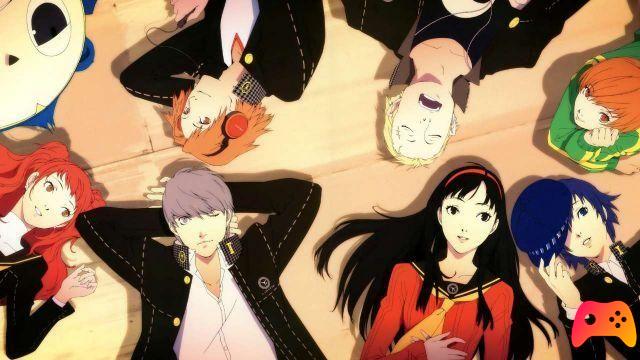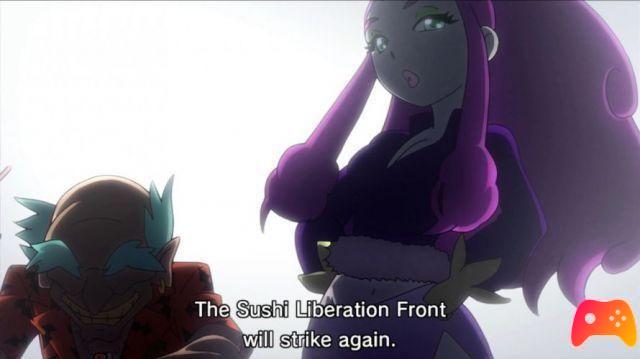
Review for Tokyo School Life. Game for Nintendo Switch and PC, the video game was released on 14/02/2019 The version for PC came out on 12/02/2015
One of the genres that certainly would suit Nintendo Switch better is that of Visual novel, a videogame niche that has made the fortunes of PlayStation Vita and which usually finds its home on PC. Unfortunately, in the first two years of the Nintendo hybrid's life, there were not many opportunities to deal with some of these "interactive books" of level and equally unfortunately it will not be the case with either Tokyo School Life, the game that we find ourselves reviewing today on Nintendo Switch (4 years after its release on Steam), an example of Simplistic and uninspired VN that we will forget very soon.

In Tokyo School Life practically everything screams "banality", starting from the concept. In practice, we will play the role of a horny foreign student (American, it is later understood) ready to experience two months of school exchange in Japan, a country with which he is madly in love and with which he has also studied his language tirelessly. In addition to learning more about its intriguing culture and enjoying its favorite anime up close, the real goal of our protagonist is certainly less noble but more practical: to woo and conquer at least one Japanese girl and crown his "romantic" dream (with all the quotes you want) during his short stay. To facilitate his work, the developer M2 (Japanese indie studio) has well thought - inexplicably - of sending him not to an embarrassing family home like everyone else with grandmothers and nuisance neighbors, but to a beautiful temple on the outskirts of Tokyo with three beautiful teenage girls .
A slice of Japanese culture ...
Tokyo School Life will thus see us immerse in modern Japan, also allowing the player to discover details of the life and traditions of the Rising Sun by interacting with the girls (Sakura, Karin and Aoi) and their surroundings. This is undoubtedly the best feature of the game: without going into too much detail or spoiling some of the locations and situations that will be encountered during the story, after reaching the credits you can say that you have learned something more about the customs of a country that , if you are reading this review, almost certainly at least a bit of curiosity will trigger it. M2 was good at organically presenting Japanese places, terms and traditions in the intertwining, also because the rest of the package, in actual narrative terms, leaves a lot to be desired.
In addition to culture, the many language options included in the software can also help those who really want to learn the Japanese language: it is in fact possible to view the text of the game together with English in Hiragana, Katakana and Romaji and, due to the structure of the Visual Novels, it is also possible to go back, repeat, reread and listen again.

… Seasoned with unlikely love stories
Side dish aside, the gist of the game lies in the history and romance options of Tokyo School Life, which will lead you to familiarize yourself with the three girls and learn about the hidden sides of their characters, which are actually well developed: all three members of the "family" you will meet are decidedly different from each other and have their own peculiar traits that go far beyond what one might think at first glance. We are not talking about topoi too far from what you may have already seen in years of anime and video games, but there are some surprises and features that demonstrate one also quite deep study of their personalities, at first sight too identifiable in the classics of the genre (tsundere, moe, etc.).
What doesn't work, however, is the intrinsic structure of both the narrative of the - short, the you will complete the first time in three or four hours - plot of the game and of the visual novel component, identifiable in the choices you are going to make and with which you will direct your experience towards one of the four different endings. We were in fact disappointed by the brevity and the hurry with which the matter is resolved in the game: the Visual Novels are often very deep works with great longevity (these days an excellent example is coming out like Steins; Gate Elite), while TSL it lasts very little and ends almost abruptly, interrupting even the little hinted evolution of the characters that was taking place, without particular jolts or revelations.

Tokyo School Life looks more like works like Nekopara (also on Switch) and Doki Doki Literature Club, but it lacks the originality and the - er ... - let's say VM18 of the first and the - double er ... - let's say bizarre twist of the second . All this is also confirmed by the little impact that the user can have on the events: there are a handful of "crossroads" in the game, obviously as per tradition activated with the different dialogue choices of the player. Their only purpose is to point towards one of the endings dedicated to one of the girls, with perhaps only the story of Sakura to impose itself then for themes and feelings.
The rest of the package is experienced just like a tunnel that mechanically sends us towards a practically impossible to miss moment of final romance with one of the three Japanese girls, forced and unnatural. Forget the subtlety of Persona 5's S-Links here of dating sim there is practically nothing and, a few days after having 100% finished it we are almost certain you will have forgotten most of the plot and the situations experienced.

And it's a shame, because there are so many things we liked about Tokyo School Life (released a few days ago in the Switch store at € 14.99), starting with an artistic style (obviously very manga) that was really successful, complete with animations for the girls' 2D models (maybe those on the breasts if they could also spare them Ed), a wise dubbing and catchy music, but the paucity of the development of the characters, of the plot and the limited playful component condemn the entire product to mediocrity.
► Tokyo School Life is a Visual Novel game developed by M2 and published by PQube for Nintendo Switch and PC, the video game was released on 14/02/2019 The version for PC came out on 12/02/2015






